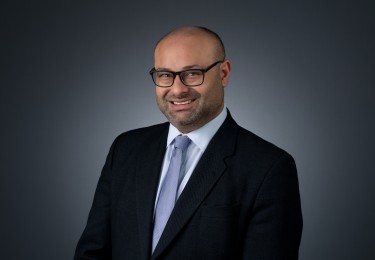Investments | 27 July 2022
The golden rules to retirement planning: Where there’s a will there’s a way
In the first of a new series of articles, we look at the best way to protect your own future and your family’s. From wills to inheritance tax to incapacity planning, there’s a lot to consider.
Become a client
When you become a client of Coutts, you will be part of an exclusive networkIf you haven’t thought about estate planning, you’re not the only one. According to a 2020 survey by Canada Life, 59 per cent of UK adults don’t have a will in place. However, understandably, for many the Covid pandemic appears to have pushed succession planning up their list of priorities.
Knight Frank’s 2021 Wealth Report found that 28 per cent of high net worth individuals now cite the transfer of wealth as one of their top three concerns.
With the next couple of decades set for the biggest transfer of wealth in history, as Baby Boomers pass down their assets, having the right structure in place is increasingly important.
It’s important to remember, for example, things like the inheritance tax seven-year rule. If you give someone a financial ‘gift’ outright, it might not be subject to inheritance tax if you don’t pass away within seven years of making it.
More broadly, however, there is no one-size-fits-all approach when it comes to estate planning. It’s about determining how you want to best manage your wealth during your life, and after you’re gone.
Where to begin? It may sound morbid, but the best place to start is with death.

People typically have the will they think they want rather than the one they actually need. As Fiona Carss, Director of Wealth Structuring at Coutts, points out: “Most people say, ‘I already have a will in place’, but 99% of the time it’s not fit for purpose. From a retirement planning perspective, you don't just need to have a will, you need an appropriately drafted will.”
Poorly made wills can happen because sometimes those drawing them up might not take the time to tailor the document to the individual and their family’s particular priorities.
When thinking about a will, there are three key things worth considering:

Once you’ve considered what you may want to pass on when you’re no longer around, you need to think about how your money will be managed during your life.
Sensible lifetime planning with a trust can be a logical way to manage your money. “Trusts often get a bad rap,” says Fiona. “They can be misunderstood and are often incorrectly assumed to be only for the rich. But they can be really important in giving you the control and nuance you need to decide how your wealth is distributed.”
Trusts are really about flexibility. Lifetime discretionary trusts, for example, are increasingly common and typically have a pool of named beneficiaries who can only access the money when the trustees decide they can. They can also be a good way to efficiently manage any potential tax liabilities.
Meanwhile, those with philanthropic interests could set up a grant-making foundation to support their family’s charitable aims. And if you leave more than 10 per cent to charity, this could reduce the rate of inheritance tax charged on your estate from 40 per cent to 36 per cent.

As part of your lifetime planning, it’s also worth putting measures in place should the worst happen and you become incapacitated. Entrusting someone with a lasting power of attorney (LPA) is an important insurance policy should you become unable to look after your own affairs. It gives you peace of mind that you’re protecting your family.
People typically don’t realise that, without an LPA, no one can manage your money and it could end up in the hands of a court. This means if you have a joint account, it’s frozen. Or if you co-own a business, you cannot sell it.
Here at Coutts, we could help you understand your options and create a structure based on what will best suit you and your family.
THIS ARTICLE IS BASED ON OUR UNDERSTANDING OF CURRENT TAX LAW AND PRACTICE AS AT JUNE 2022.
Read more about financial planning with Coutts or for more information, speak to your private banker.
To have a Coutts Invest pension, you must be over the age of 18 and under the age of 75 and be a UK resident for tax purposes. You cannot make contributions if you are a US citizen or US Green Card holder. You cannot access your pension benefits before the age of 55. Eligible pensions only. Fees and charges apply.
Tax reliefs referred to are those applying under current legislation which may change. The availability and value of any tax reliefs will depend on your individual circumstances. Advice and product fees may apply.
More insights







